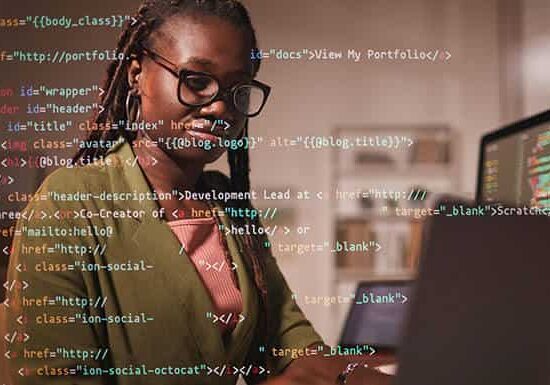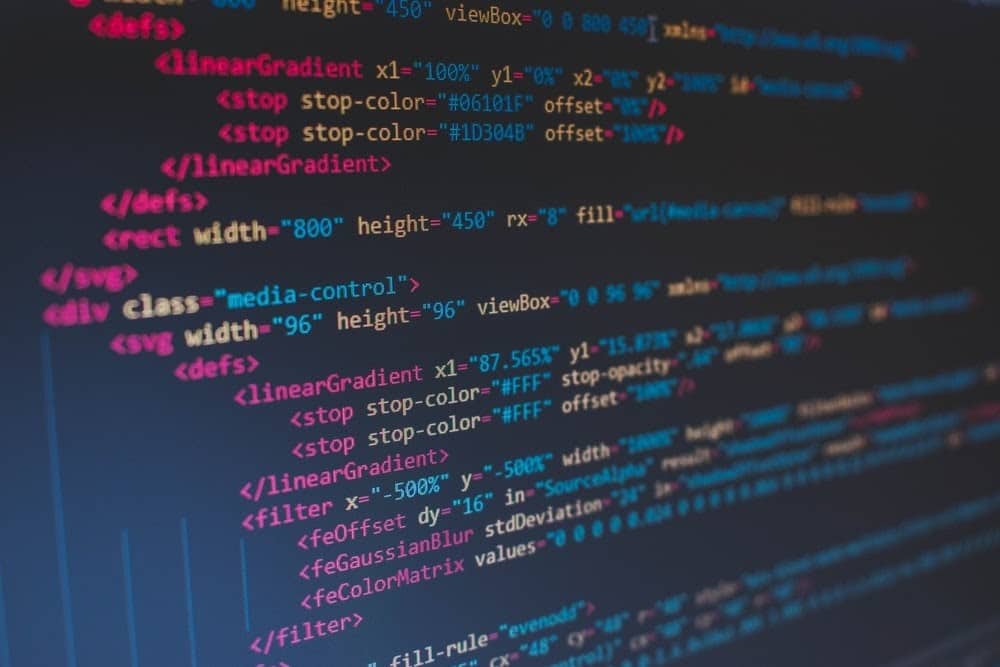How To Start Learning Coding: Do It Yourself!
Updated: June 19, 2024

Contrary to the image you may have of dark rooms and computer programmers who never sleep, you can actually code anywhere (given you have a computer). In the same vein, you can spend time learning coding anywhere you choose for however long you wish to spend honing the skill. This is just one of the beautiful aspects of learning this powerful ability.
Along with the multitude of career opportunities that become available when you know how to code, you can also pursue creative endeavors like designing video games, for example. With code, the possibilities become virtually limitless to what you can create digitally.
Many people say that they want to start coding. If you are one of these people, then knowing how to start learning coding is the primary step in the process. That is why we have compiled some of the ways by which you can learn.

What is Coding?
Coding is the ability to write code that a computer executes to carry out a function or set of functions.
Coding is used to create websites, software systems, applications, and more. In fact, you’re able to read these words right now because of coding.
Depending on what you want to develop, you will choose the programming language accordingly.
Benefits of Knowing How to Code
Before we jump into all the ways you can learn how to code, let’s quickly touch on the various benefits of having this skill.
- High earning potential: Job titles like web developers, computer programmers, database administrators, and software developers are known for being quite lucrative careers.
- High demand: Since so much of the world and businesses rely on technology, these fields have high demand.
- Career flexibility: In the digital economy, having coding skills provides a competitive advantage. People who know how to code can apply for a variety of careers. Also, the logic and problem-solving skills that coding requires offers a great transferable skill.
How to Start Learning Coding
The prospect of learning to code may seem daunting at first. However, it’s entirely doable by following just a few steps.
1. Define your goals and intention
One of the most important aspects of learning to code is having your answer as to why you want to code in the first place. This is because you will want to decide which programming languages to learn based on your end goals.
Additionally, you’ll want to consider how much time, money, and energy you can commit to this endeavor. Writing your goals down is a good idea so that you can always refer back to your intentions if it ever becomes challenging.
2. Choose the language you want to learn
There are many different programming languages. Each one is best to achieve certain outcomes.
For example, to code a website, the best languages are Java, CSS, and JavaScript. For a programming language that is highly versatile, Python is a good option. For front-end development and as one of the most simple languages to learn, HTML is a solid choice.
3. Find resources
There are many resources available to learn how to code. Consider the following:
- Online tutorials: There are free and cost-effective online coding courses. You have the option to enroll in courses and earn a certificate at the end.
- Textbooks: Code reference books share the conventions and the syntax of languages.
- Bootcamps: Coding bootcamps offer a relatively short, but intensive way to learn how to code. They can take place in person, workshops in groups, or online.
- Tools: Starting with the basics and even using tools designed for kids is a wonderful way to learn coding. Along with intro courses, you can utilize tools like Alice or Scratch.
4. Get a code editor
In online courses, you’ll probably have access to a web-based code editor. However, it’s recommended to download your own. While HTML and CSS are programming languages that can be coded directly into a text document, most other languages come with their own code editors to download. Based on the language you choose to learn, download and practice on the corresponding code editor.
5. Practice
When you have learned enough of the basics, you can begin and continue to practice coding on your own time. The only way to get better is with practice over time. So, even if the process begins feeling complicated, don’t give up.

Online Degrees: Computer Science
To take your coding expertise to the highest level, getting a degree in computer science provides an unparalleled experience. You can choose to use any of the aforementioned tools and resources while you earn your degree, too.
With a computer science degree like the one offered at University of the People (UoPeople), you will be provided with everything you need to become a coder. Some of the major benefits of choosing to study at the University of the People include:
- A tuition-free degree
- 100% online learning
- Accredited program that is well-respected by employers
- The knowledge you need to enter any field within the industry
- The ability to learn alongside people from all different backgrounds
- The possibility to work and learn at the same time because the courses are self-paced
The Wrap Up
It is always a great time to get started learning coding. For those who want to make it a profession, pursuing a degree in computer science provides the most opportunity. Most careers that rely on coding will require at least a bachelor’s degree to obtain.
However, it is also always possible to utilize online courses, textbooks, and platforms to learn how to code yourself with zero financial or time commitment involved. As you learn one language, you can continue to add more to your repertoire to become a polyglot programmer.
Coding has become somewhat of a superpower these days as so many business problems can be solved through technology and software. Having the ability to code means that you can deliver impactful solutions to businesses and individuals who need them.
